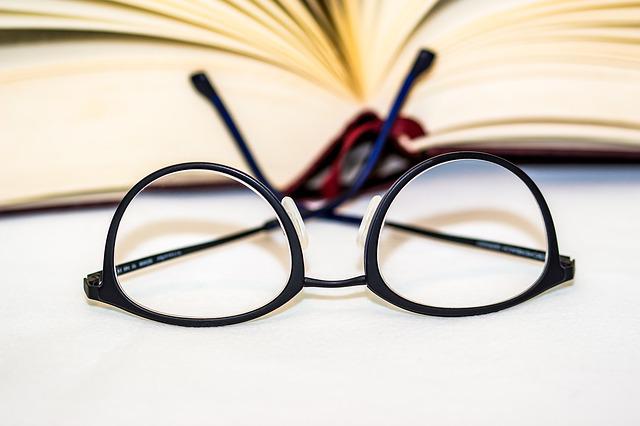The process of improving eyesight in the best natural, quick and beneficial way for all
Although many cataracts can help restore vision, there are only a few causes of low vision, which can be treated by making the lens of the eye more transparent. One is cloudy eyes caused by clouds on the cornea, known as superficial keratitis. The presence of these clouds can be treated by introducing an anti-infective.
1. Eyeglasses and contact lenses
People with low vision and whose vision can improve can be helped in several ways. Eyeglasses, contact lenses , or laser surgery are among the most popular options here . You can decide what is best for your eyes, lifestyle, and financial condition by discussing alternatives with your eye doctor.
Wearing contact lenses may provide many benefits. If you want to get the most out of your contact lens experience, keep in mind that all contact lenses, even cosmetic lenses, do not correct vision but change the color or appearance of the eye.
2. Improving vision with eye surgery
Eye surgery helps enhance vision at first sight. Your vision will improve if you do not experience any negative effects. You won't need glasses anymore if all goes as planned. Exactly how long is the case. More than 50% of patients who need eye surgery again need glasses, according to the Medical Institute.
Improving vision after laser surgery Common treatments for vision problems include laser surgery. No or few contact lenses or glasses are required. Refractive errors from laser treatment may help. The cornea or eyeball is irregularly shaped as the source of these problems.
3. Eye exercises to improve vision
1. Flickering
Blinking is a logical method that can help you focus for extended periods and keep your eyes looking fresh. Especially when they are paying attention to something, those who use computers and watch TV tend to blink less. Now, try it out as a quick workout. Blink every three to four seconds for the next two minutes. After doing this for two minutes, mentally notice whether your eyes are tense, relaxed, or tired.
2. Focus on the long and short term
- Another excellent exercise for the eye muscles is concentration.
- How to focus effectively.
- You can perform this exercise while sitting or standing.
- Focus on your thumb by placing it in front of your face about 10 inches away.
- Now pay attention to anything else nearby that is within 10 to 20 feet.
- Over 2-3 minutes switch between near attention and distance.
3. Zoom eye workout
Zoom is a great eye exercise that helps strengthen your eyes and improve your ability to focus. Eye exercises to enlarge focus on your near and far eyes
Follow these direct instructions for eye augmentation:
- Sit in a chair and relax.
- As if you are about to get into the car, extend your thumb.
- Keep your attention on the thumb, and bring it closer to your eye.
- When your thumb is three inches from your eye, stop moving it.
- While extending your arm again, take your thumb away from your eye.
- The whole time, keep your attention on your thumb.
- Spend two to five minutes doing this.
- Repeat three to five times daily.
4. Analysis method
Following a new stress-relieving routine may improve your vision. The palm method, which involves covering your eyes with the palm of your hand to prevent any light stimulation, is very effective at soothing the eyes, mind, and body.
Set aside time each day to practice your palms for at least five minutes at a time. Try to do this as soon as you get home from the office or during the first few minutes of your lunch break. Rest your hand before bed. Develop a morning palm habit instead to get rid of stress and anxiety before it gets worse.
Here are the top 4 vitamins you should take to maintain good vision.
1. Vitamin A
Teeth, bones, soft tissues, mucus, and skin benefit from the role of vitamin A in their growth and maintenance. Because it promotes the formation of pigments in the retina, it is also known as retinol. When it gets dark, vitamin A is very beneficial for vision.
Regarding your vision, vitamin A is crucial. Your eye must create specific pigments for your retina to function properly and to be able to display the full spectrum of light. Night blindness results from a lack of vitamin A, which prevents the formation of these pigments.
Symptoms of vitamin A deficiency include anemia and dry eyes. In addition to being an oral supplement, vitamin A is used orally to reduce fine wrinkles, spots, and roughness and treat acne. In most cases, a balanced, healthy diet will provide enough vitamin A.
2. Vitamin B
3. Vitamin C
According to several epidemiological studies, vitamin C may help reduce your chance of developing cataracts, a disorder that causes your eyes to blur and affects vision. Age-related macular degeneration (AMD) appears to be reduced by taking oral vitamin C supplements in combination with other vitamins and minerals.
4. Vitamin E
A healthy nutrient called vitamin E may help protect your eyes from certain diseases including macular degeneration and cataracts. Benefits of taking vitamin E for the eyes and eyesight. Nuts and seeds. An excellent source of zinc and vitamin E, which promote eye health and may reduce the risk of cataracts, and they are also great sources of iron.
5. Finally, eye drops help with vision
Eye drops can only help with transient medical problems such as infection, eye strain, dehydration, or age-related vision loss. To treat allergy symptoms, including blurry vision, there are several different types of eye drops available.

Comments
Post a Comment